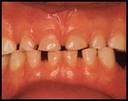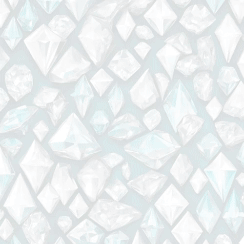Bruxism / Griding / Clenching
Mouthguards
(Teeth Grinding)

In the dental literature, bruxism has been defined as "the gritting, clenching and grinding of teeth, especially during sleep." The practical fact of the matter is that nearly every one bruxes at some time or the other during their life.
What matters is the degree of the bruxing. If the teeth grinding is severe then it can result in sleep disorders and a host of associated dental problems, such as loosening of the teeth, fracture, and excessive wear.
Characteristics of Bruxing

With heavy bruxing, the teeth tend to wear out faster. In fact, the edges where upper and lower teeth meet may become quite raw and tender. Teeth will also tend to have an evenly aligned appearance because they have been filed down to a straight line.
This wearing out can result in the nerve endings becoming exposed, which can then cause the teeth to develop sensitivity to hot or cold. A patient will also find small fractures on the teeth and small pieces chipping off.
Stress has also been found to be a major factor with bruxing. Stressed out people tend to brux more. In fact, it has been stated that bruxing provides one of the earliest signs of increasing stress.
Since stress can affect a person in many ways, it is worth it to heed this early sign and taking corrective action.
The condition of your bite also has much to do with bruxism. In general, if your bite is comfortable and relaxed, the tendency for teeth grinding is significantly reduced. Another indicator is the headache many people have upon waking up.
This is caused by the unnatural tension in the muscles of the jaw. Patients often undergo bite therapy to correct this disorder.

A simple tmj appliance to reduce the effect of heavy bruxing is a mouthguard (also known as a nightguard). This is an acrylic device that fits snugly between the rows of your teeth to reduce the effect of teeth grinding on each other.
While a mouthguard is not a true solution to bruxing, it certainly ensures that your teeth do not get worn down as fast due to the heavy pressure. Most people adapt easily to the use of a mouthguard and enjoy much better sleep as a result.
In summary, the way to treat bruxism is through a three-pronged attack. Reduce stress in your life, correct your bite and ensure that there is no residual strain on your jaw when it is in the natural position and finally, use a mouth guard to minimize the damage.
For a complimentary examination appointment to see if you have a dental alignment problem and what treatment would be right for you, please contact us online or call 650-961-5047.
We'll answer any questions you may have, and give you a free written estimate regarding costs and insurance benefits before you leave.
Dr. Ashouri
Dr Ashouri | Testimonials | Insurances we use | Forms | Orthodontics | Adult Orthodontics | Children's Braces | Invisalign | VPro | Dental Headgear | Nightguard | Retainers | Crooked Teeth | Overbite | Under Bite | Cross Bite | Open Bite | Buck Teeth | Thumb Sucking | Tongue Thrust | Bruxism | Sleep Apnea | Map | Contact Us
©2006 Nahal Ashouri DDS MS

